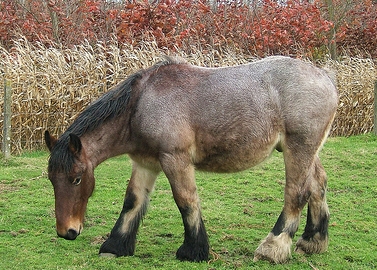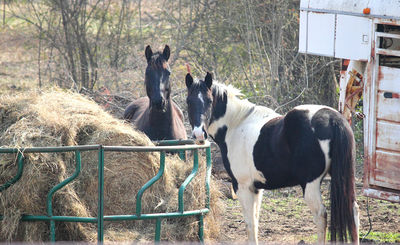Vaccines are crucial to horses’ health, keeping them disease-free. However side effects, although not common, can occur.
After vaccination, a horse may experience achiness and a slight fever, swelling at the injection site, soreness in the neck area. These effects usually abate in a couple of days.
Some horses can have severe reactions to vaccinations, but these are rare. An anaphylactic reaction can be life-threatening and requires immediate veterinary care. A horse may develop sensitivity to the vaccine or an infection at the site. Strong vaccines such as rabies and tetanus may produce side effects. Intranasal vaccines sometimes cause sneezing or a slight, clear nasal drip.
Serious side effects are usually treated with NSAIDs (non-steriodal anti-inflammatories).
Before administering a vaccine your veterinarian should give your horse a thorough physical examination. (This may be difficult if a large herd of horses is receiving vaccinations). If your horse is ill at the time the vaccination is due, it is best to delay it until the immune system has time to recover.
You may choose to have titer blood testing done on the horse, particularly one with a compromised immune system and/or an existing disease such as Cushings. Titers measure the amount of antibodies present in the blood for each disease the vaccine represents. Although they can be more expensive, titers let you know if the vaccine is necessary at that time.
If your horse reacts negatively to a vaccine, it’s important to discover the cause so that it can either be treated and doesn’t recur.
Vaccines are a necessary part of preventing disease. But they should be administered correctly and at appropriate intervals.


